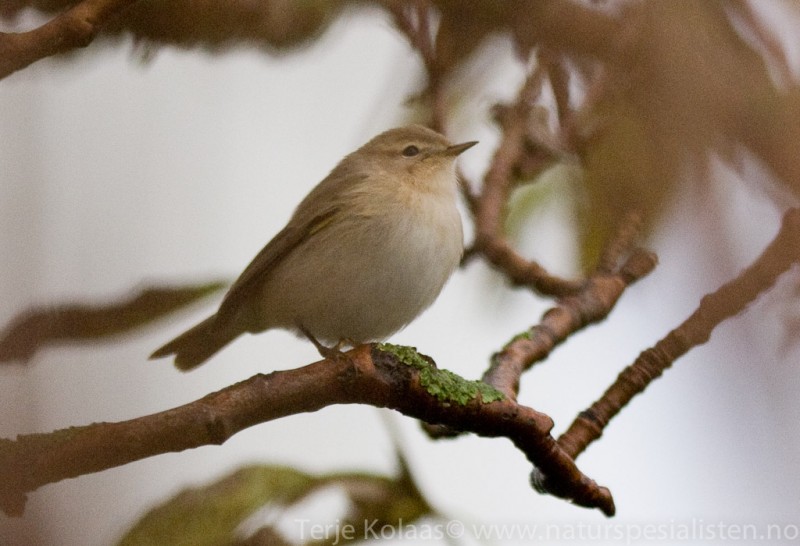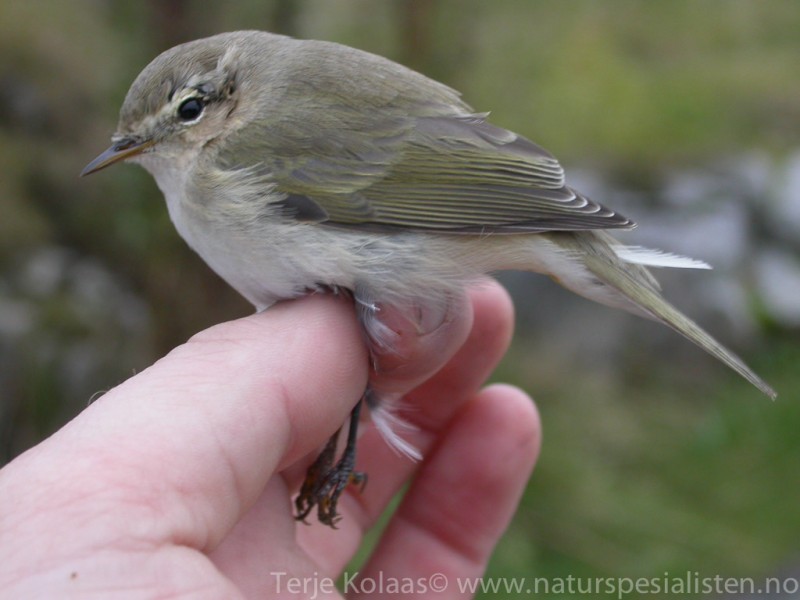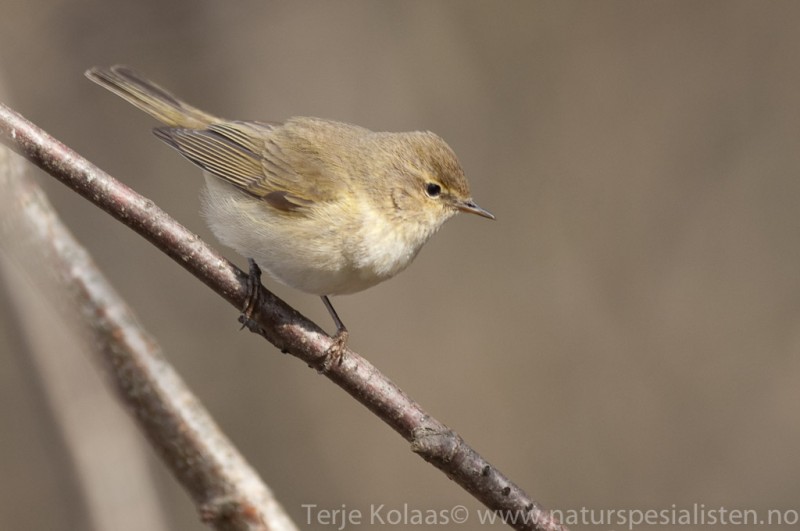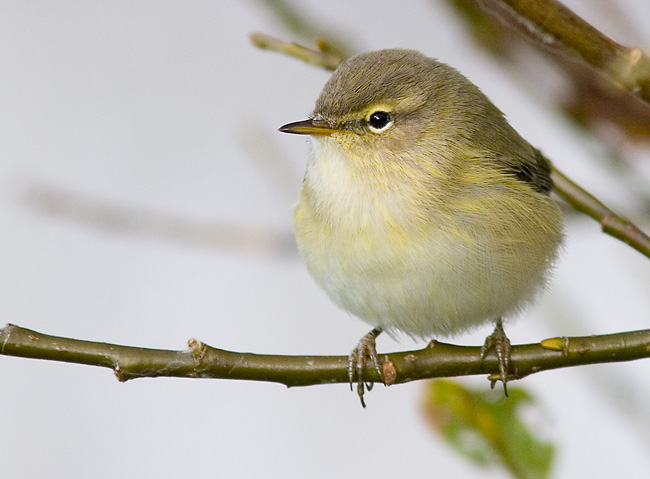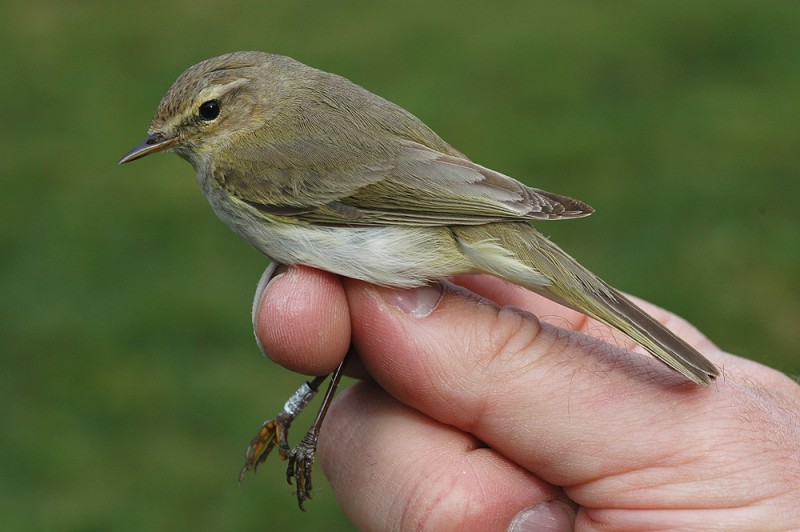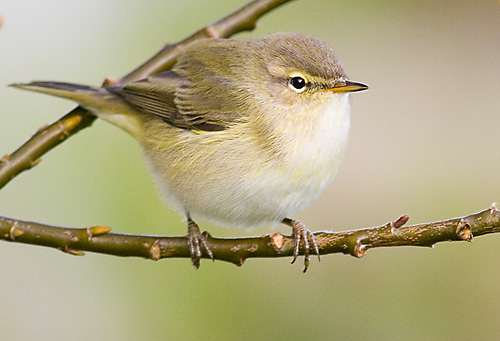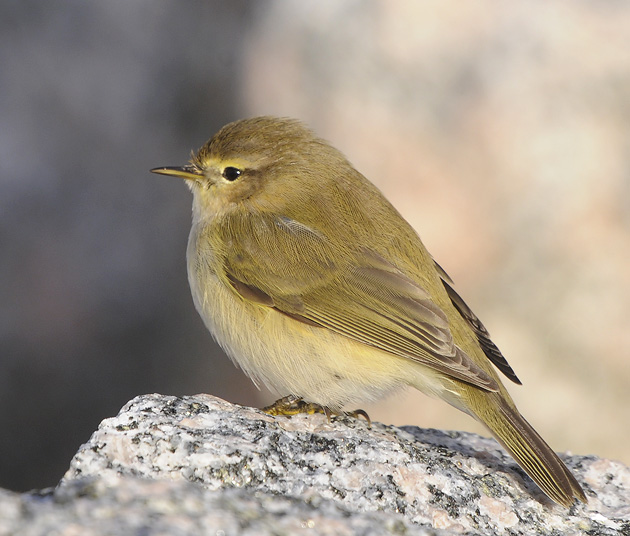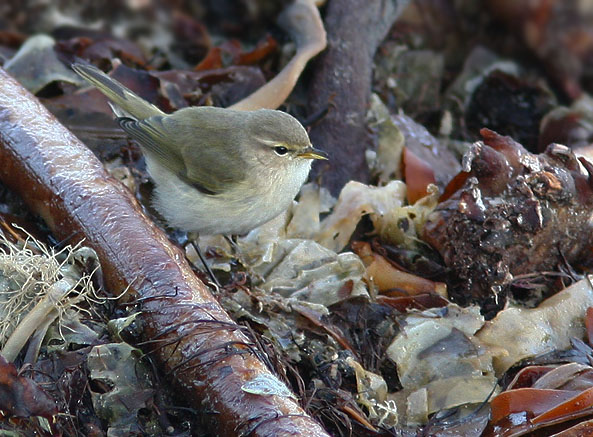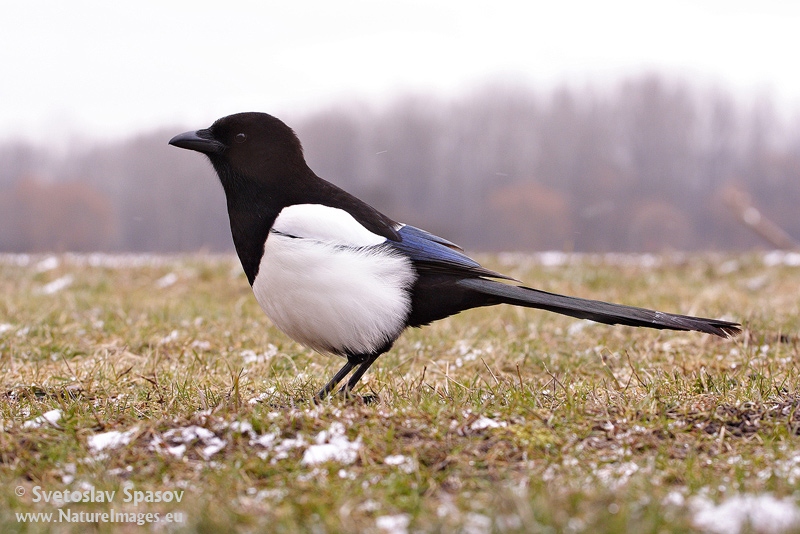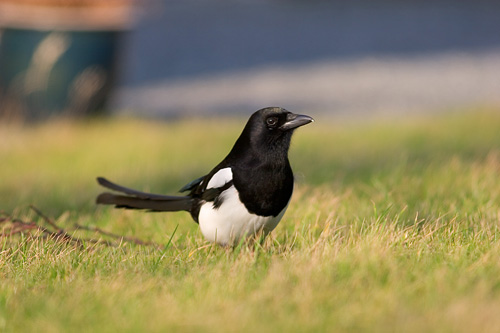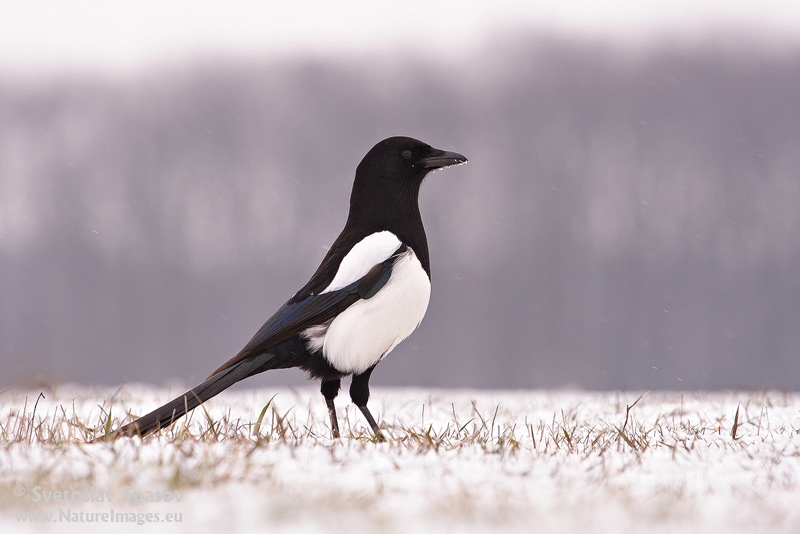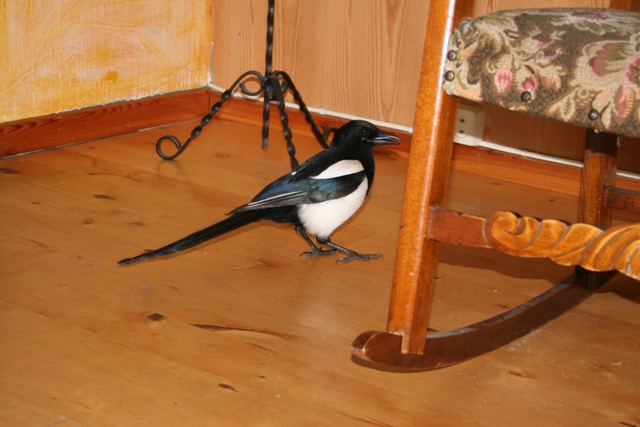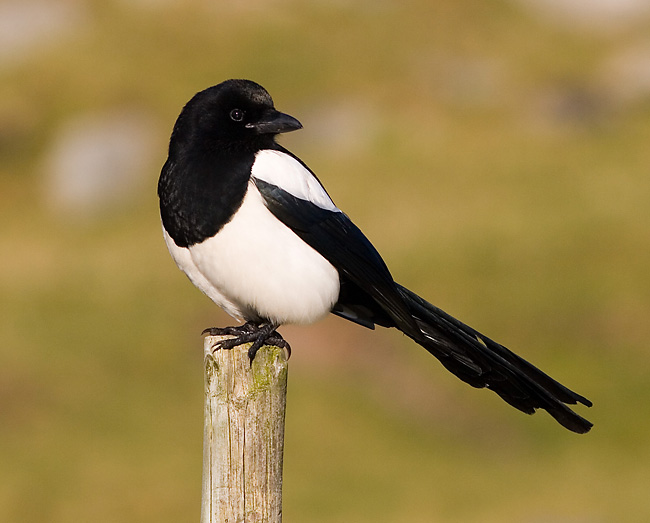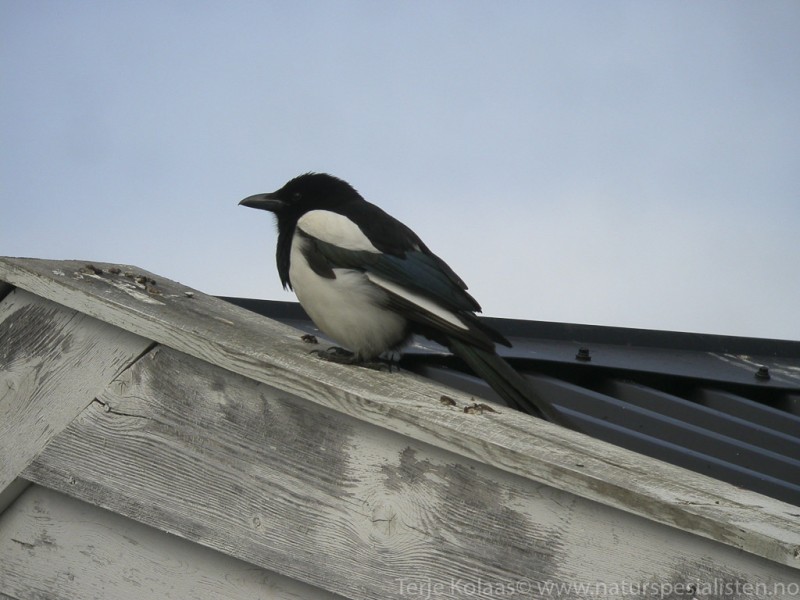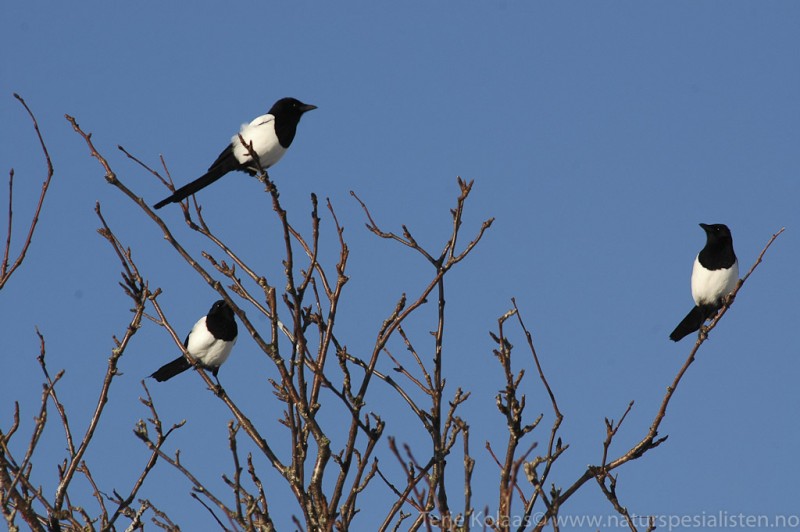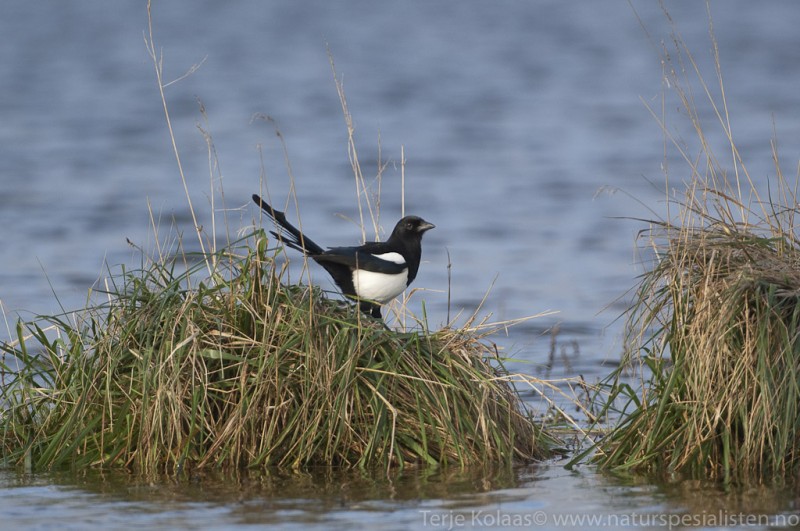Chiffchaff (Phylloscopus collybita)
Magpie (Pica pica)
Olive green upperparts, yellowish chest with gradual transition to off-white belly. Very similar to Willow Warbler, and most field characters are subtle and often hard to see. Distinguished by (usually) black, or dark-brown legs, only faint dark framing to ear-coverts, less marked supercilium. Shorter primary projection (1/2 to 2/3'rds the lenght of tertials), with regularly spaced tips (visible when wing folded). Wings more fan-shaped and less pointed than in Willow Warbler. Juveniles much less yellow below than in W.Warbler. Generally leaves a duller and greyer impression than W. Warbler, but plumage very variable. Frequently flicks tail, even sideways. Generally also more active when moving among the foliage.
Sound:Contact/alarm call a soft, plaintive ascending "hooeet". Similar to W.Warbler, but shorter with a monosyllabic feel. Song a very distinct: "chiff-chaff-chiff-chiff-chaff-chiff", in a regular clock-like rhythm. Each syllable at seemingly random pitch, but no large intervals tonally. Sometimes "get stuck" at one note.
Contact call, song:
Distribution:
Wikipedia: map (se also Xeno-canto below)
Ecology:Birdlife ecology
Links:
Observation.org Latest observations
Image search Flickr NB! May give other species
CCUnmistakable. Only black and white passerine of it's size in Europe. Short rounded wings and exceptionally long tail. Wings fan-shaped and tail graded. Tail constitutes about half of the total length in adult birds. Compact body but relatively long legs. Flat crown. White wing patches/flight feathers very conspicuous in flight.
Sound:Most notable sound a harsh, chattering "chechechecheche" used as warning call, or when mobbing predators. Rich repertoire includes soft and surprisingly varied sub-song.
Alarm call:
Distribution:
Xeno-canto: map
Ecology:Birdlife ecology
Links:
Observation.org Latest observations
Image search Flickr NB! May give other species
CC
 English
English Albanian
Albanian
 Armenian
Armenian
 Bulgarian
Bulgarian
 Catalan
Catalan
 Croatian
Croatian
 Czech
Czech
 Danish
Danish
 Dutch
Dutch
 Finnish
Finnish
 French
French
 Georgian
Georgian
 German
German
 Greek
Greek
 Hungarian
Hungarian
 Italian
Italian
 Latvian
Latvian
 Lithuanian
Lithuanian
 Macedonian
Macedonian
 Norwegian
Norwegian
 Polish
Polish
 Portuguese
Portuguese
 Romanian
Romanian
 Russian
Russian
 Sami : Lule sami
Sami : Lule sami
 Sami : North sami
Sami : North sami
 Sami : South sami
Sami : South sami
 Scientific names
Scientific names
 Serbian
Serbian
 Spanish
Spanish
 Swedish
Swedish
 Ukrainian
Ukrainian


